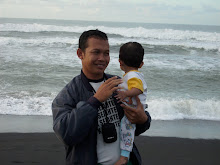Price: $17.47
There are companies that create waves and those that ride or are drowned by them. As only he can, bestselling author Ken Auletta takes readers for a ride on the Google wave, telling the story of how it formed and crashed into traditional media businesses-from newspapers to books, to television, to movies, to telephones, to advertising, to Microsoft. With unprecedented access to Google's founders and executives, as well as to those in media who are struggling to keep their heads above water, Auletta reveals how the industry is being disrupted and redefined.
Using Google as a stand-in for the digital revolution, Auletta takes readers inside Google's closed-door meetings and paints portraits of Google's notoriously private founders, Larry Page and Sergey Brin, as well as those who work with-and against-them. In his narrative, Auletta provides the fullest account ever told of Google's rise, shares the "secret sauce" of Google's success, and shows why the worlds of "new" and "old" media often communicate as if residents of different planets.
Google engineers start from an assumption that the old ways of doing things can be improved and made more efficient, an approach that has yielded remarkable results- Google will generate about $20 billion in advertising revenues this year, or more than the combined prime-time ad revenues of CBS, NBC, ABC, and FOX. And with its ownership of YouTube and its mobile phone and other initiatives, Google CEO Eric Schmidt tells Auletta his company is poised to become the world's first $100 billion media company. Yet there are many obstacles that threaten Google's future, and opposition from media companies and government regulators may be the least of these. Google faces internal threats, from its burgeoning size to losing focus to hubris. In coming years, Google's faith in mathematical formulas and in slide rule logic will be tested, just as it has been on Wall Street.
Distilling the knowledge accrued from a career of covering the media, Auletta will offer insights into what we know, and don't know, about what the future holds for the imperiled industry.
Blog Archive
-
▼
2009
(72)
-
▼
November
(10)
- Creative Composition: Digital Photography Tips & T...
- Nikon D300s Digital Field Guide (Paperback)
- Photoshop Elements 8 for Mac: The Missing Manual
- Why NOW Is the Time to Cash In on Your Passion
- Prima Official Game Guide
- Googled: The End of the World As We Know It
- Three Cups of Tea: One Man's Mission to Promote Peace
- The Audacity to Win: The Inside Story and Lessons ...
- Life After Death: The Evidence
- Arguing with Idiots: How to Stop Small Minds and B...
-
▼
November
(10)
My Blog List
About Me
Labels
Followers
BOOKSTORE BLOG Copyright © 2010 Designed by Ipietoon Blogger Template Sponsored by Online Shop Vector by Artshare







